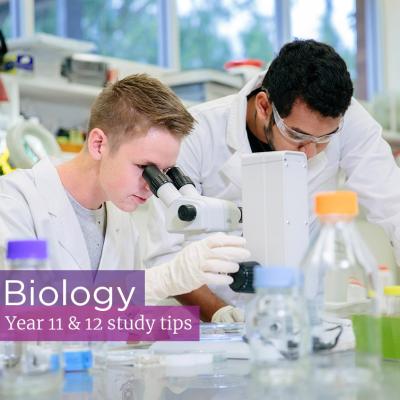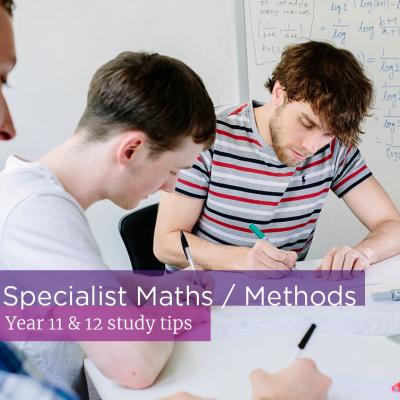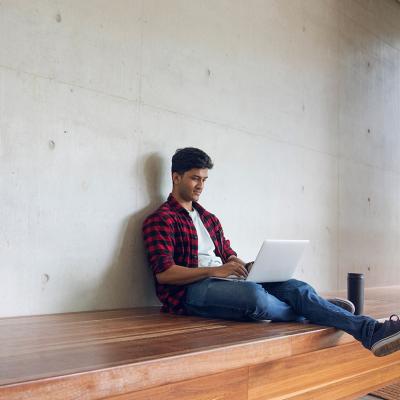Physics is often one of those subjects that gets put in the ‘too hard’ box, when it can actually be one of the most fun and rewarding subjects to study in high school.
All you need is a proactive approach to study and a few solid tips to get you on the right track. Take it from 3 UQ engineering students who whizzed through Year 12 Physics in 2021. We’ve picked their brains for all the words of wisdom they can offer on how to study for ATAR Physics.
Is Physics hard compared to other subjects?
One of the first things Year 10 students want to know before locking in Physics as a senior school subject is just how hard is it? Our trio of high school Physics veterans don’t sugar coat the obvious – it can be a challenging subject.
“I think it is relatively difficult, but if you spend more time on it, things will work out better in the long run and it will be easier to revise,” says Emily.
Aditya and Zoe agree that taking the time to regularly revise lesson concepts is essential for succeeding in this subject.
The most time-consuming part for Aditya was ensuring he fully understood each lesson before moving onto the next.
“Out of the subjects I did, I found that physics has a lot of concepts which require definitions, explanations and analysing some given data,” he says.
So, is senior school Physics hard? According to Emily, Aditya and Zoe, that depends on how much time you’re willing to commit to physics revision – and how organised you are.
What are the most difficult topics to understand in grade 12 Physics?
Understanding physics can take a bit of determination and patience. Some topics you may find more challenging than others to fully wrap your head around. For Zoe and Emily, electromagnetism was the toughest nut to crack.
“Our class hadn’t really done anything like it before,” says Emily.
For both students, the only way to really pin down electromagnetism was to practise, practise, practise.
“I memorised my hand rules and did practice questions until they became second nature.”
- Zoe Cumming
Emily says taking practice exams also helped her with this topic, along with support from her teacher.
How to study for Physics
When it comes to studying high school Physics effectively, you can take several approaches depending on your study style. You may study for a test or exam differently to how you approach general revision, for example.
Below, Emily, Aditya and Zoe outline their top study approaches for Physics, so you can try a few and pick the one that helps you most.
How to self-study for Physics
Some students study better solo, and that’s totally fine. If you’re the type of person who easily gets distracted or side-tracked, and your study buddies face similar challenges, you may find you’re more productive taking a lone wolf approach.
Emily says the key to excelling in physics is sitting down and understanding each concept rather than simply memorising formulas.
“This helped a lot when it came to answering more complex questions in exams, and also made the subject more enjoyable and interesting,” she says.
Aditya emphasises this approach, and his advice is to take each concept step by step to avoid getting overwhelmed and maximise comprehension.
Emily’s bonus tip for solo study: check out Dr Richard Walding on YouTube.
“These videos can help you revise or better understand any topic, especially those you’ve had trouble with.”
Why consider studying Physics as a group?
Comparatively, studying Physics as a group can assist with productivity if you’re the type of student that draws motivation from others. Enthusiastic study buddies can help you get in the right frame of mind for study, make the process fun, and encourage you to look at problems and challenges from new angles.
Aditya explains that having the support of his classmates when broaching the lesson on special relativity made a huge difference, as everyone soon realised they were in the same boat when it came to understanding this difficult concept.
“Initially, our class found special relativity to be a challenging concept, largely because it required you to think in terms of reference frames, applying laws to explain paradoxes, etc.,” he says.
“We built our understanding by answering questions as a group, which helped in consolidating my own skills in the topic.”
- Aditya Neurgaonkar
But if you go down the study group route, you may find a duo dynamic works better – something Zoe wholeheartedly advocates.
“I would recommend using the ‘teach a friend’ study method for Physics,” she says.
“The broad range of content covered in the subject makes this method highly effective, as you may be an expert in one area and your friend in another, and by teaching each other you both benefit.”
How to study quantum physics
Aditya explains that one study method in particular really helped him to understand quantum physics, and it’s much simpler than you might expect: the humble flashcard.
“I found that as Physics used a lot of definitions (from the syllabus objectives), the use of flashcards was really helpful and a sort of fun way to revise – they really help in areas such as quantum physics,” he says.
“You could make flashcards by hand or use apps to make online flashcards."
Flashcards can improve your long-term memory and information recall through self-testing. You can also make it fun by adding incentives for getting the answer right. The kind of incentive you give yourself depends on what motivates you – this could be food (lolly snakes anyone?) or a few minutes of break time.
How to study for a Physics test
When considering how to study Physics for an exam, it’s important to think about a long-term approach from the offset. You cannot easily begin revision for a Physics test the night before. This goes back to Aditya, Zoe and Emily’s original advice – regular revision is key to setting yourself up to succeed at Physics in Years 11 and 12, and that includes exams.
“Practising a few problems from previous sections regularly will save you a lot of trouble prior to exams,” says Zoe.
Regular revision helps to commit lessons to your long-term memory, which, in turn, will help you to understand consecutive lessons that may draw on similar concepts.
Emily’s advice is similar.
The bottom line? You aren’t going to perform well in a Physics exam if you decide to start revising an entire year of syllabus the night before. There’s no ‘winging it’ in Physics.
Who should consider studying Physics in Years 11 and 12?
Physics isn’t all revision and exams, however. There are a lot of fun practicals and exercises you’ll get to do with your classmates too.
So, exactly what type of person will enjoy studying physics in senior school?
“If you are interested in learning how the universe works (to some extent, on a high school level), physics could be an interesting subject to study,” says Aditya.
Zoe believes that Physics is the best pick out of all high school science subjects.
“If you want to study a science but aren’t sure which one to choose, I highly recommend Physics,” she says.
“You will gain a greater understanding of the forces (and even particles) that control the world around you and have fun in the process, especially with all the practicals.”
Physics was the only science subject Emily took in Years 11 and 12, and she’s never looked back.
“It’s a really interesting and worthwhile subject which helps a lot with specialist maths too.”
- Emily Nilsen
If you’re curious about the world and universe around you, have good time-management skills, patience and determination, Physics could be a subject you thrive in.
Keep in mind that studying at least one science subject – such as Physics, Biology or Chemistry – is a prerequisite for several university degrees. Make sure to consider this if you’re on the fence about starting or continuing with Physics.
Explore our other study guides to find out how to excel in all your high school subjects and ace your exams.








